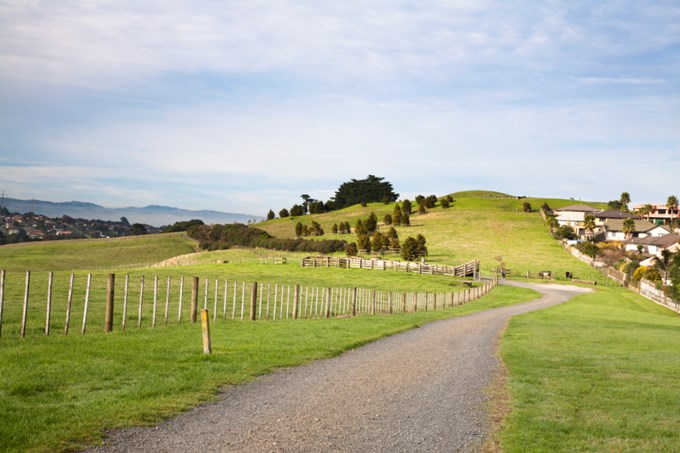On the afternoon of Sunday 5 August 2018 there was an incident at Totara Park involving livestock and members of the public, which has been widely reported about in the media.
Our primary focus at this stage is the safety of the public using the park and the wellbeing of the members of the public involved in the incident.
We have been in contact with the woman involved in the incident, and we are still trying to contact the man. We will continue to check on them, and we wish them both speedy recoveries.
The park is owned by Auckland Council, but the stock on the site are managed by a private grazing licensee – this licence is managed by Panuku Development Auckland on behalf of Auckland Council. Our staff went to the site as a matter of urgency on Monday morning and met with the grazing licensee holder on site.
With an immediate focus on public safety, the cattle involved in the incident were isolated and then removed from site by the grazier. The grazier owns the stock at the park, and it was the grazier’s decision as to what happened once they left the site.
Auckland Council and Panuku Development Auckland are currently investigating and reviewing what happened, and as part of this we will be considering any changes that may need to be made. The grazier, who has informed WorkSafe, is assisting us with the review.
About Totara Park
Totara Park stretches over 216 hectares and is home to a network of walking and mountain biking tracks through native forests, a number of streams, picnic tables, tennis courts, swimming pools and an adventure playground.
Approximately 60 hectares of Totara Park contains an area grazed under licence, which is also accessible to the public. The areas under grazing at the park are fenced into paddocks and accessed through gates at the public’s discretion.
Grazing licences on council land
Panuku Development Auckland manages 12 grazing licences (including at Totara Park) over approximately 200 hectares, the majority of which are part of the council’s park network.
Grazing enables cost effective vegetation management, while at the same time we work to provide suitable guidelines around stock management and animal husbandry.
They also provide a point of connection between people who live in the city and animals, giving an opportunity for those who otherwise wouldn’t connect with nature. As such, there isn’t necessarily always a strict separation between the public and stock – as is the case at Totara Park.
This practice has been in place across our parks for a number of decades with very few issues.
Auckland Council’s farming operations
In addition to the licences in place at sites like Totara Park, Auckland Council also has its own separate farming stock in some parks that are managed by the Auckland Council Farming Team.
Livestock grazing in Auckland enhances visitor experience to our parks and reserves. The farming undertaken on Regional Parks by the Auckland Council Farming Team is outlined in Auckland Council’s approach to farm operations is outlined in the Regional Parks Management Plan.
Farming is a primary industry in New Zealand and having stock on our farms accessible to the public gives people the opportunity to experience farming. Our regional parks and some local parks focus on maintaining rural and heritage landscapes which provide settings for the public to learn about the region’s farming heritage and sustainable farming practices, and partake in a range of recreation activities.
Places such as Ambury Regional Park provide educational opportunities and give urban Aucklanders an opportunity to see livestock up close.
Livestock grazing also provides a revenue stream through providing grazing licences and sale of animal products. This also helps with pasture control. We do this in an efficient and cost-effective manner that optimises the economic return to the council without compromising the role and purpose of our parks.
In Regional Parks we ensure our stock numbers are controlled, to ensure balanced management of recreation, land management, and risk to the public is managed.


